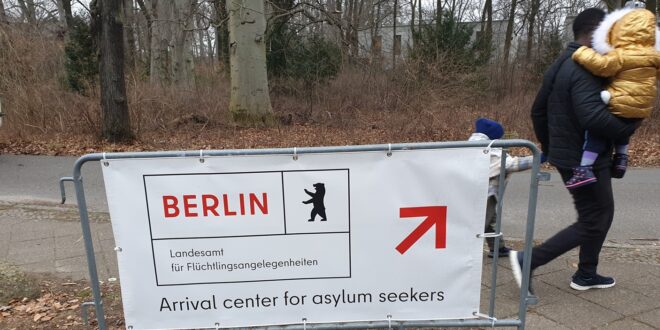The party leaders of the CDU, CSU and SPD presented the coalition agreement this week, outlining their plans for a joint government. One of the dominant topics is migration. Among other significant changes to the country’s migration policies, Germany’s incoming government, led by Chancellor-designate Friedrich Merz of the CDU, intends to scale back recent liberalisations in citizenship law, tighten family reunification rules and step up deportations. At the same time, the coalition partners affirm that the constitutional right to asylum remains untouched.
____________
Fast-track naturalisation to be scrapped
The so-called “turbo naturalisation”, introduced by the former coalition of SPD, Greens and FDP, is set to be abolished. Since June 2024, this policy had allowed well-integrated migrants — those with strong school or work records, excellent language skills, or active civic engagement — to apply for citizenship after just three years. Critics in the CDU labelled this policy excessive and have now succeeded in removing it.
However, the coalition will retain key elements of the broader citizenship reform, including the reduction of the standard residency requirement from eight to five years and the general acceptance of dual nationality.
The parties have dropped earlier proposals to strip citizenship from naturalised individuals with dual nationality in cases of terrorism or extremism. This idea had met with strong resistance from migrant groups, who viewed it as creating a “second-class citizenship”. Instead, the parties now plan to review whether foreign residents (non-Germans) who publicly incite the abolition of the democratic constitutional order can be more easily expelled.
Restrictions on family reunification
Another major change affects refugees with subsidiary protection status — a category that includes many Syrians. Under the new agreement, they will be barred from bringing family members to Germany for two years, except in cases of hardship. This pauses the current monthly quota of 1,000 family reunifications. After the two-year period, the government will assess whether to extend the suspension based on the migration situation. Family reunification for recognised refugees remains unchanged.
Tougher stance on deportations and border control
The coalition plans to significantly increase deportations. Tools such as visa policy, development aid and trade relations will be used to pressure countries into accepting returns. The mandatory legal aid for people facing deportation — introduced by the previous government — will be abolished.
Moreover, the parties want to expand border checks and explore the possibility of turning away asylum-seekers directly at Germany’s borders, in coordination with neighbouring states. Migration experts have raised legal concerns over this approach.
No expansion of humanitarian admissions
The coalition also intends to phase out ongoing humanitarian admission programmes, such as those for at-risk Afghans. No new quotas are planned for particularly vulnerable groups.
Mixed public reactions
The proposed policies have sparked debate within Germany. While some view the measures as necessary for national security and social cohesion, others express concern over potential human rights implications.
Public opinion appears divided. A recent survey indicates that a significant majority of the German population supports the migration plan proposed by the CDU party, with 69% in favour and only 21% opposing it.
The SPD’s youth wing and left-leaning members have criticized the agreement, particularly its migration stance. A party-wide vote on the coalition agreement is underway, with results expected by April 30.
Implications for African migrants
These policy shifts may have significant repercussions for African migrants in Germany. The emphasis on stricter border controls and expedited deportations could lead to increased scrutiny and reduced opportunities for asylum-seekers from African nations. Additionally, the conditionality of foreign aid may affect bilateral relations with African countries that are unwilling or unable to facilitate the return of their nationals.
As the new government prepares to implement these policies, human rights organizations and migrant advocacy groups are closely monitoring the situation.
Sola Jolaoso
 THE AFRICAN COURIER. Reporting Africa and its Diaspora! The African Courier is an international magazine published in Germany to report on Africa and the Diaspora African experience. The first issue of the bimonthly magazine appeared on the newsstands on 15 February 1998. The African Courier is a communication forum for European-African political, economic and cultural exchanges, and a voice for Africa in Europe.
THE AFRICAN COURIER. Reporting Africa and its Diaspora! The African Courier is an international magazine published in Germany to report on Africa and the Diaspora African experience. The first issue of the bimonthly magazine appeared on the newsstands on 15 February 1998. The African Courier is a communication forum for European-African political, economic and cultural exchanges, and a voice for Africa in Europe.


































